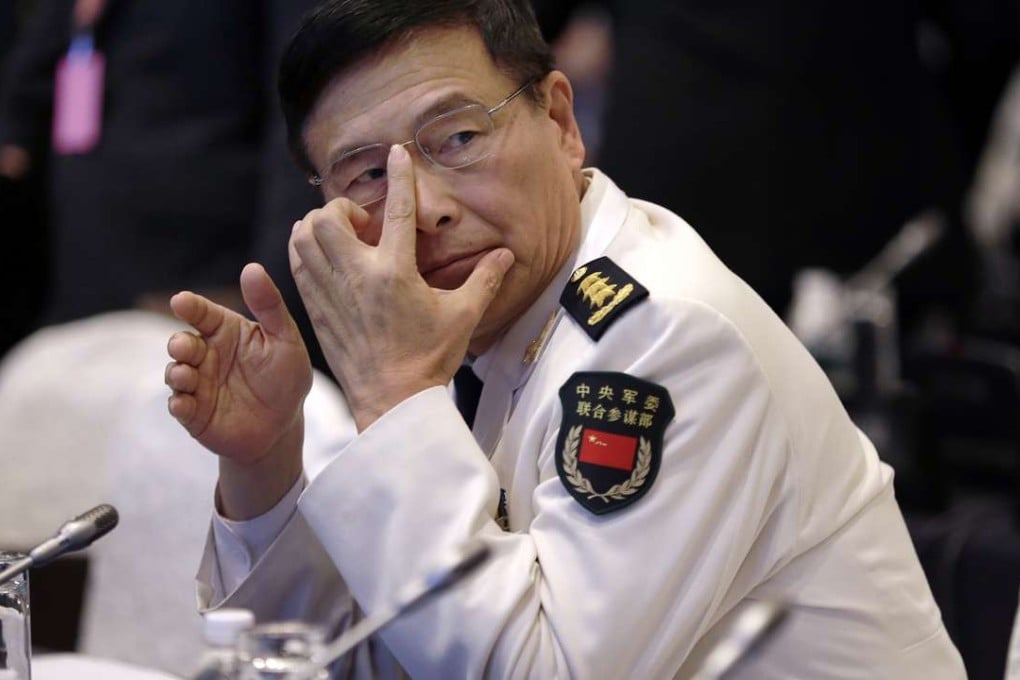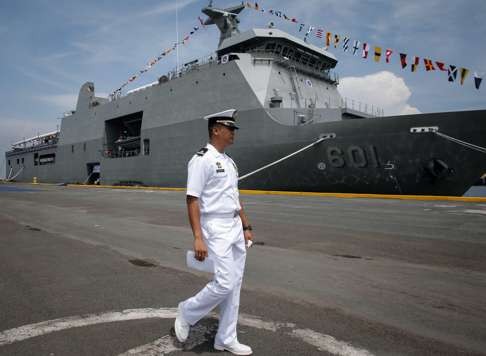China’s strident words on South China Sea sovereignty are anything but reassuring to a wary region
Bonnie Glaser says the Shangri-La Dialogue, where nations queued up to express their concerns over Beijing’s actions, was another missed opportunity to shore up relations

In what was perhaps the only extemporaneous remark made by China’s PLA representative at the Shangri-La Dialogue this past weekend, Admiral Sun Jianguo (孫建國) said that his bilateral meetings with foreign counterparts – 17 in all – were “warmer and friendlier” than those he held last year. Sun claimed to have received fewer questions during these meetings on the South China Sea. He insisted that trust had increased since the last dialogue. If Beijing really believes its behaviour over the past year has led to greater confidence that China’s rise will be peaceful and will not come at the expense of other nations, then China and its leaders are truly autistic.
China takes veiled shot at ‘destabilising’ US presence in the Asia-Pacific
A succession of defence leaders and delegates at the dialogue voiced concern about China’s uncertain intentions, its island building and military activity in the South China Sea, and its rejection of the pending ruling by the UN arbitration case filed by the Philippines. One after another, they called for a rules-based international order and for all countries to abide by prevailing international norms and laws.


Washington keen to build ‘principled security network’ in Asia-Pacific, says US Defence Secretary Ashton Carter
The remarks by Sun, deputy chief of the People Liberation Army’s joint staff department, contained nothing reassuring. He staunchly defended China’s “indisputable sovereignty” over the South China Sea, and attempted to shift the blame for rising tensions there onto the US and the Philippines. Absent was any mention of President Xi Jinping’s (習近平) pledge – made publicly in Washington last September – to not militarise the Spratlys. Sun didn’t even attempt to soothe anxiety by reiterating Chinese intentions to use the reefs in the disputed waters primarily for the provision of public goods, such as search and rescue. His call for countries to “address the reasonable concerns of others while pursuing their own interests” rang hollow. While other defence representatives tabled concrete proposals to promote cooperation, Sun failed to offer anything hopeful other than a vague assertion that China has no hegemonic ambitions and that Xi’s China Dream is consistent with the dreams of other countries in the region. His insistence that China has been a victim of aggression and invasion by its neighbours in the South China Sea over the past decades probably didn’t win any sympathy.
